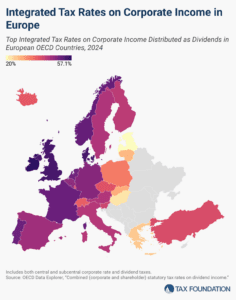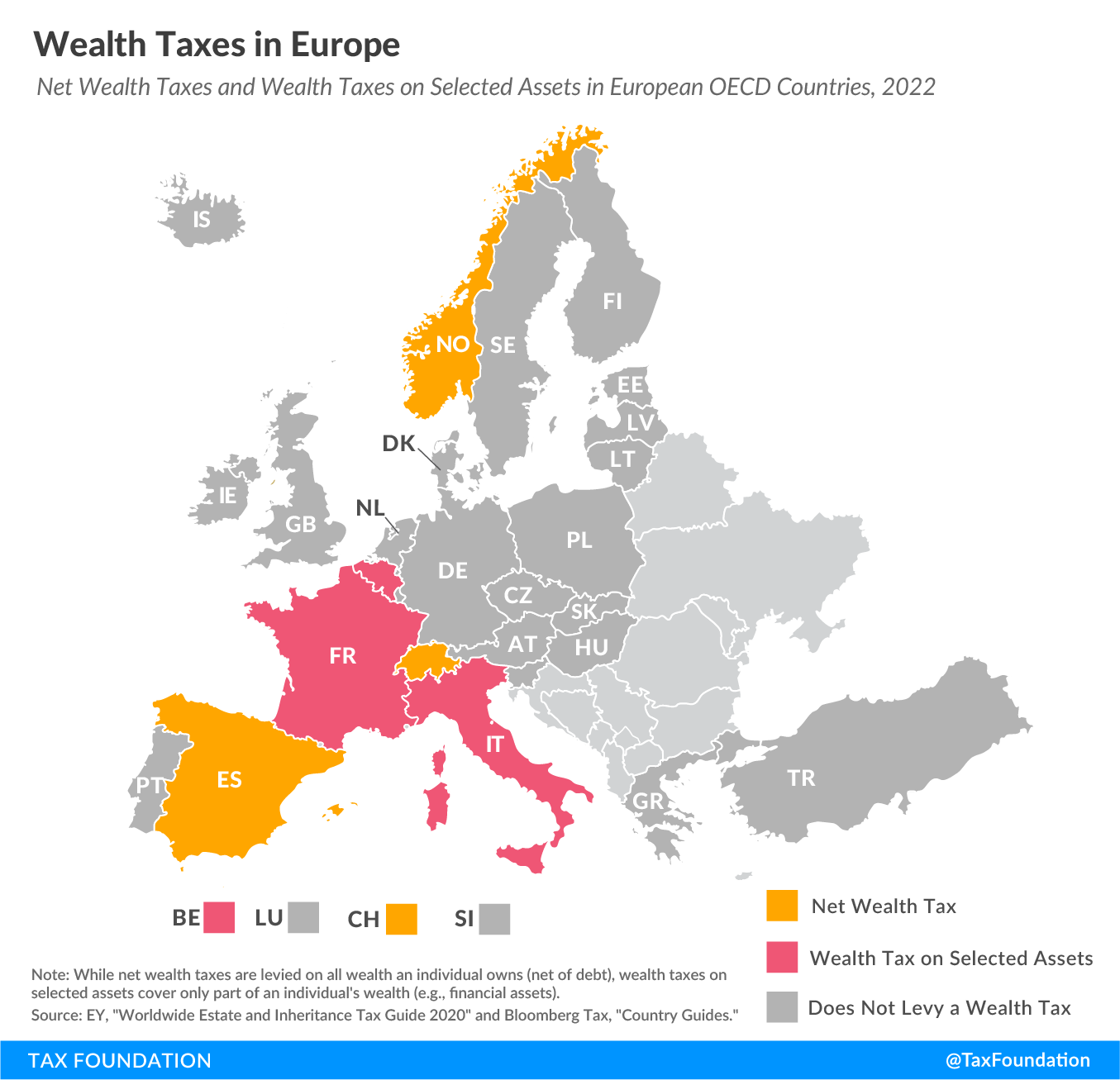
Wealth Taxes in Europe, 2022
3 min readBy:Net wealth taxes are recurrent taxes on an individual’s wealth, net of debt. The concept of a net wealth taxA wealth tax is imposed on an individual’s net wealth, or the market value of their total owned assets minus liabilities. A wealth tax can be narrowly or widely defined, and depending on the definition of wealth, the base for a wealth tax can vary. is similar to a real property taxA property tax is primarily levied on immovable property like land and buildings, as well as on tangible personal property that is movable, like vehicles and equipment. Property taxes are the single largest source of state and local revenue in the U.S. and help fund schools, roads, police, and other services. . But instead of only taxing real estate, it covers all wealth an individual owns. As today’s map shows, only three European OECD countries levy a net wealth tax, namely Norway, Spain, and Switzerland. France and Italy levy wealth taxes on selected assets but not on an individual’s net wealth per se.
Net Wealth Taxes
Norway levies a net wealth taxA tax is a mandatory payment or charge collected by local, state, and national governments from individuals or businesses to cover the costs of general government services, goods, and activities. of 0.95 percent on individuals’ wealth stocks exceeding NOK 1.7 million (€180,000 or US $190,000), with 0.7 percent going to municipalities and 0.25 percent to the central government. Norway’s net wealth tax dates to 1892. Additionally, for net wealth exceeding NOK 20 million ($2.3 million), the tax rate is 1.1 percent.
Spain’s net wealth tax is a progressive tax ranging from 0.2 percent to 3.75 percent on wealth stocks above €700,000 ($761,000; lower in some regions), with rates varying substantially across Spain’s autonomous regions (Madrid offers a 100 percent relief). Spanish residents are subject to the tax on a worldwide basis while nonresidents pay the tax only on assets located in Spain.
Switzerland levies its net wealth tax at the cantonal level and covers worldwide assets (except real estate and permanent establishments located abroad). The tax rates and allowances vary significantly across cantons. The Swiss net wealth tax was first implemented in 1840.
Wealth Taxes on Selected Assets
France abolished its net wealth tax in 2018 and replaced it that year with a real estate wealth tax. French tax residents whose net worldwide real estate assets are valued at or above €1.3 million ($1.4 million) are subject to the tax, as well as non-French tax residents whose net real estate assets located in France are valued at or above €1.3 million. Depending on the net value of the real estate assets, the tax rate ranges as much as 1.5 percent.
Italy taxes financial assets held abroad without Italian intermediaries by individual resident taxpayers at 0.2 percent. In addition, real estate properties held abroad by Italian tax residents are taxed at 0.76 percent.
Belgium introduced in 2021 a solidarity tax or tax on securities accounts (TSA) of 0.15 percent on securities accounts that reach or exceed €1 million ($1.09 million). However, a similar tax was annulled, in 2019, by the Belgian Constitutional Court. The scope of the new TSA was broadened to include securities accounts held in Belgium and abroad and is levied on the securities account itself. Therefore, the number of account holders or their ownership status is irrelevant.
Stay informed on the tax policies impacting you.
Subscribe to get insights from our trusted experts delivered straight to your inbox.
Subscribe




